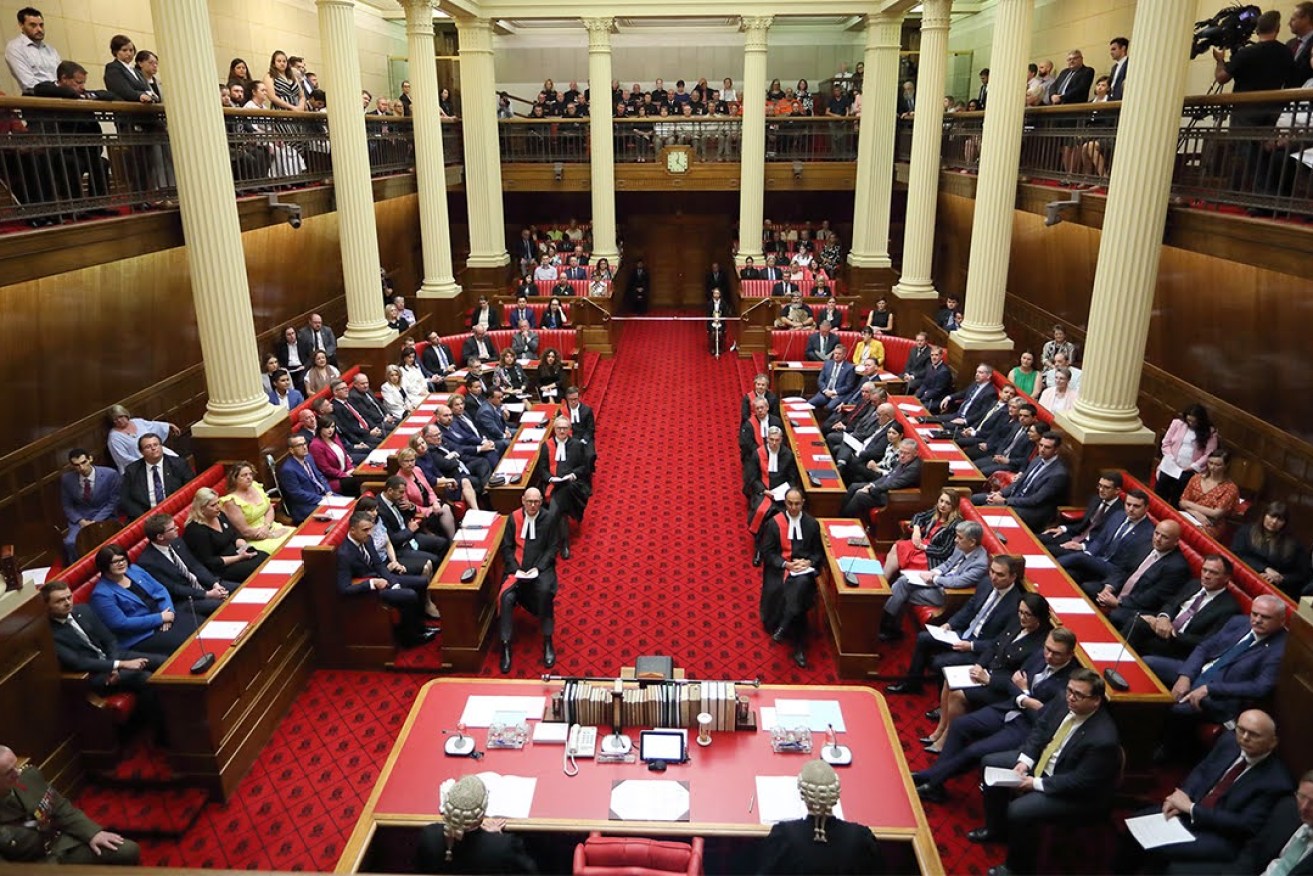ICAC’s ability to hold politicians to account is under threat
Amendments to ICAC legislation now before parliament would restrict the anti-corruption body’s powers and independence while putting politicians beyond its reach, writes Independent Commissioner Against Corruption Ann Vanstone.


State parliament is voting on a bill which would see its members put beyond the reach of ICAC, the Commissioner argues. Photo: Tony Lewis/InDaily
The ICAC is a publicly funded agency. Like all publicly funded agencies, it has been created to serve the public interest. But what type of ICAC are the public interested in?
I do not have an authoritative answer to this question. But I do have a hunch. I think the public want an ICAC that is resourced well enough to investigate what needs to be investigated, and I think they want an ICAC that is more transparent than the one they have got.
Ultimately, I think the public wants to be assured that the powerful are being held to account.
On August 25, the Hon Frank Pangallo MLC introduced a Bill into the Legislative Council to make amendments to the Independent Commissioner Against Corruption Act 2012.
The time is right to refine the legislative scheme governing public integrity in South Australia. But this Bill does not refine the legislation, it dismantles it.
The Act as it stands provides a complex set of inter-related tools that operate together to allow the Commissioner to seek out corruption and failures of public integrity. The Act offers powerful tools to investigate wrongdoing. It also provides effective safeguards to ensure that those powers are used in a measured and appropriate way.
The Pangallo Bill claims to enact recommendations made in the December 2020 report of the Parliamentary Crime and Public Integrity Policy Committee chaired by Mr Pangallo. In reality, it goes much further. It has been introduced without any consultation with me, or, I believe, the Ombudsman.
It appears to be premised on the idea that the ICAC’s significant powers have been abused in the past. That simply is not true.
I will outline three main areas where I consider the amendments are designed to weaken the ICAC.
First, the Bill severely narrows the definition of corruption. Under the proposal, a number of current and past investigations could not have occurred, because the offences investigated would not come within the proposed definition. All of the dishonesty offences in Part 5 of the Criminal Law Consolidation Act go. The Bill also removes the ability of the Commissioner to independently initiate investigations. In order to commence an investigation, a complaint and report would have to be referred to me by the Office for Public Integrity (OPI). I might learn of an allegation, but not be able to investigate it.
The second matter is by removing ICAC’s ability to refer a matter directly to the Director of Public Prosecution, the Bill erodes my independence. Instead, a completed investigation would have to be given to SAPOL, which might or might not undertake further investigation and lay charges or refer to the DPP. The police would determine whether the matter would ever see the light of day. I would become a satellite of the police. How would this work if it were a police officer who was under suspicion? Quite apart from that, this process would inevitably lead to double handing and delay. I cannot see the point of it. Indeed, I wonder what the point of having an ICAC investigation in the first place would be.
The Bill contains other intrusions upon my independence. It expands the role and powers of the Reviewer to an unwarranted degree. As it stands, the ICAC does not operate in an unchecked environment. There are accountability measures written into the Act to ensure we are subject to appropriate scrutiny. An important check is the role of the Reviewer. The Reviewer, now to be called the “Inspector”, is to be given a suite of new powers including to issue summonses and to enter and search any place or vehicle occupied by the ICAC or the OPI, or to seek a warrant to enter any other place or vehicle.
I welcome scrutiny, but this seems to me to be potentially intimidatory. It appears to be premised on the idea that the ICAC’s significant powers have been abused in the past. That simply is not true.
Over its lifetime the operations of the ICAC have been subject to detailed scrutiny by two highly respected former Supreme Court justices, the Hon Kevin Duggan AM QC RFD and the Hon John Sulan QC. Neither has ever uncovered any abuse of power. Since I have occupied this office I have never seen an abuse of power. The only person who is claiming that ICAC has abused its powers is Mr Pangallo. I know of no such abuse and I refute that. In my view this amendment is overkill.
The Bill also severely curtails my prevention and education functions. I consider these to be at least as important as investigating corruption. That is why I have placed more resources into these areas.
It does not provide a more transparent ICAC. It severely narrows ICAC’s powers. It places politicians out of reach.
The third matter is that changes proposed would rob the ICAC of the intelligence we rely on to inform our work. Under the Bill the OPI would no longer be responsible to ICAC. It would be an independent statutory office headed by an experienced legal practitioner. My only involvement with the OPI would be to receive from it matters assessed as raising a potential issue of corruption in public administration.
The current ICAC Act allows the Commissioner to have visibility of all corruption, misconduct and maladministration matters and this, in turn, allows a complete picture of the integrity landscape in South Australian life. The Bill would take this away. Misconduct and maladministration are corruption risks and have proved to be a breeding ground for corruption. I am concerned that without this overview ICAC would not be able to see the signs that trouble might be brewing.
Mr Pangallo’s private member’s Bill is a regressive step in terms of the integrity of public administration in the State. It is not well considered. It is not a good outcome for the people of South Australia. It does not provide a more transparent ICAC. It severely narrows ICAC’s powers. It places politicians out of reach. If it goes on to pass in the House of Assembly without significant amendment, the public could have no confidence that the powerful are to be held to account.
Ann Vanstone has been involved in South Australia’s justice system for more than 40 years, including as a Judge of the District Court and Justice of the Supreme Court of South Australia. She began her term as Independent Commissioner Against Corruption in September 2020.




